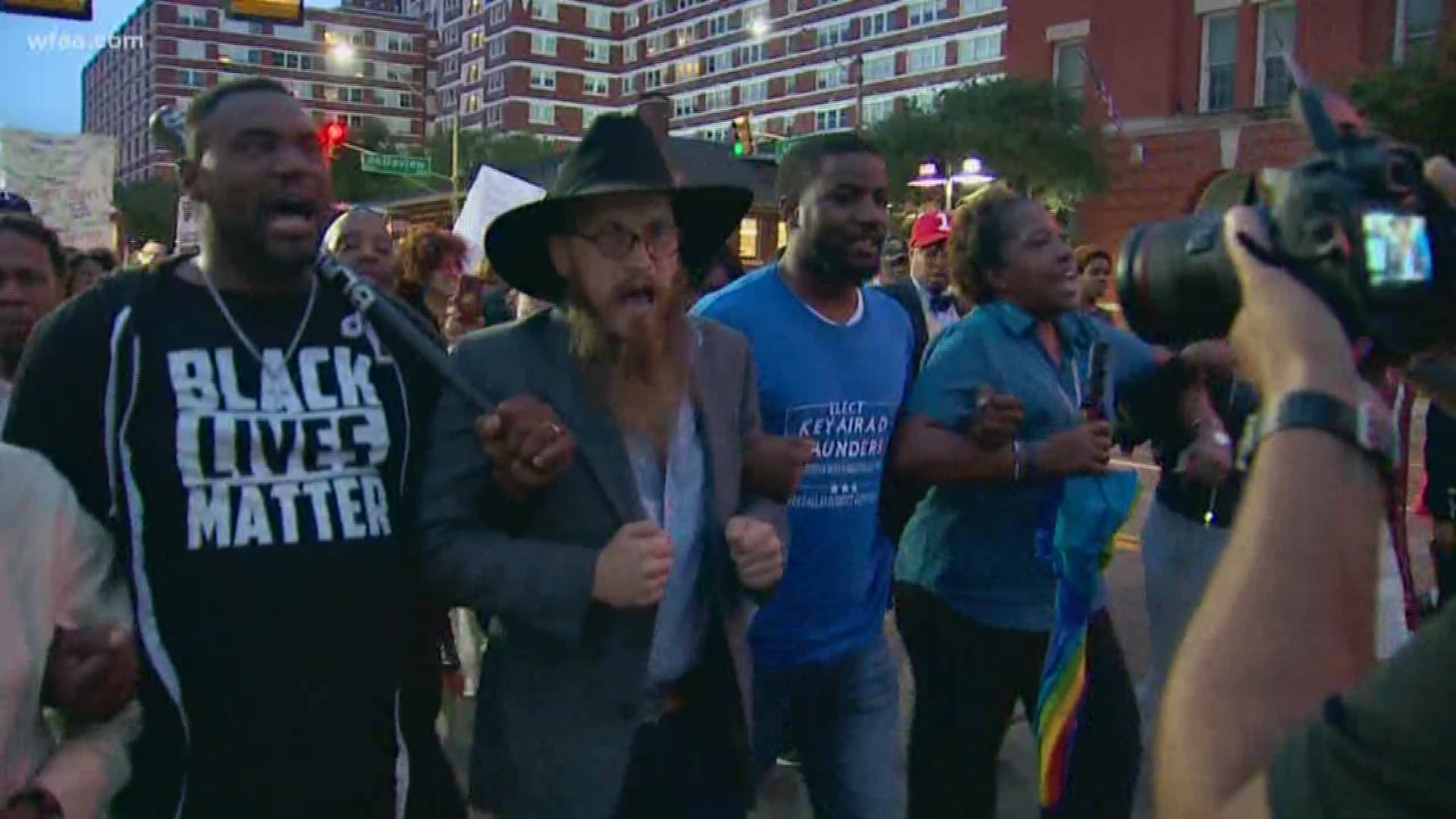DALLAS – On July 7, 2016, five Dallas law enforcement officers were shot and killed in an ambush during a peaceful protest on the streets of downtown. Darkness seemed to envelop the city, but for a brief time on July 8, an interfaith prayer service at Thanksgiving Square provided some light.
“Right after the service, people started coming to us and giving us hugs,” said Sgt. Robert Munoz, the Latino Community Liaison in the Community Affairs Division of the Dallas Police Department.
Pastor Richie Butler of St. Paul United Methodist Church recognized it was a pivotal moment. “How do we take that moment and turn it into a movement? I asked myself, and that’s how we came up with the year of unity,” he said.
Butler recognized that, to help Dallas heal, people needed to talk about things that nobody likes to talk about. “Race, politics and religion,” he said. “We need to talk about at least race if we don’t deal with the other stuff.”
Project Unity rolled out a year of events titled “Together We,” so there was Together We Dine, Together We Pray, Together We Worship, and many more.
Together We Dine was a series of dinners with people of all races and religions eating meals together with race as the topic.
Dallas Police were involved in the events, too, and Munoz said the city felt more unified. “It improved the relationship with the community,” he said.
The nation viewed it that way too.
When the National Law Enforcement Museum opens in Washington, DC on October 13, Dallas will be one of just five cities featured in a special exhibit for improved police and community relations.
Project Unity will be honored for helping heal the city.
But that strengthened relationship has been tested yet again by the shooting of Botham Jean, a 26-year-old unarmed black man killed in his own apartment by a white off-duty Dallas police officer. “It’s like cutting open a wound that you thought was healing,” Butler said. “I think we, along with law enforcement, have to recognize that.”
Butler and Munoz say the Jean shooting didn’t erase all the progress they had made, but instead proved, like any relationship, the one between police and the public takes constant work. “A lot of people engage or encounter law enforcement in times of crisis,” Butler said. “If we can engage law enforcement in times of calm, then when crisis comes there’s a different response.”
“There’s some deeper challenges and concerns and I think not just with law enforcement but with the justice system as a whole,” he said. “I’m confident and I believe because of our work with DPD in particular that they’re committed to a rightful end.”
Munoz said through the work with Project Unity, he’s seen a willingness to listen. “It might be hostile, or it might be pleasant, but still we have to have that open conversation to continue improving those relationships,” he said.
One of Butler’s favorite success stories came from a Together We Ball event, when officers, clergy and the community took to a basketball court together.
“And one of the referees, a volunteer, he comes to me after the game and he said, ‘Pastor, I want to thank you for organizing this because I really have issues with law enforcement, but this helps to change my perception.’”
Butler said it has become clear that what they dubbed a “Year of Unity,” must be extended.
“It is an exercise in listening,” he said. “I realized probably a month into the year of unity that we’re talking about a movement. It is a lifelong journey on our part.”

